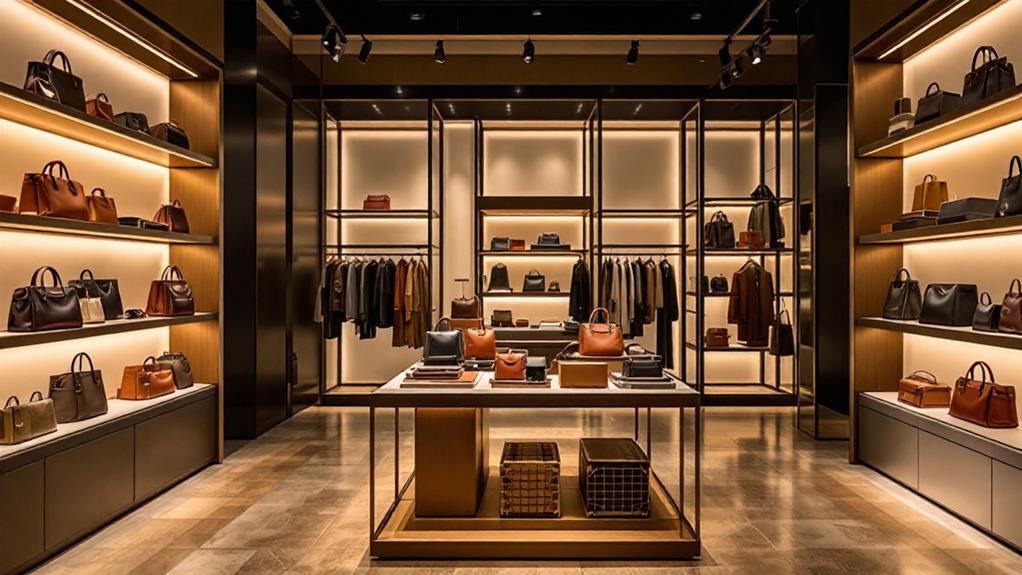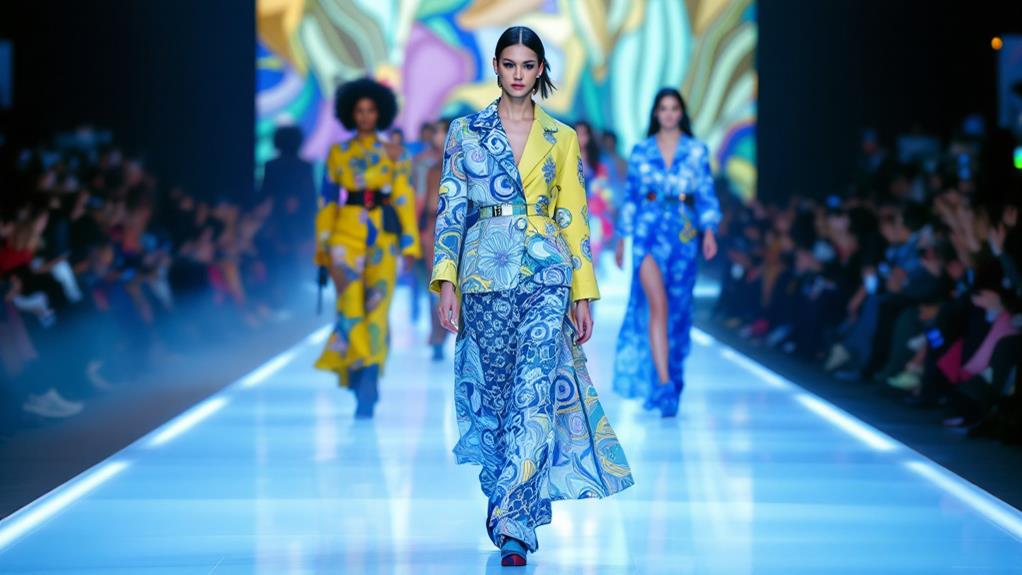Luxury Car Brands: Is Tesla the Future of Luxury?
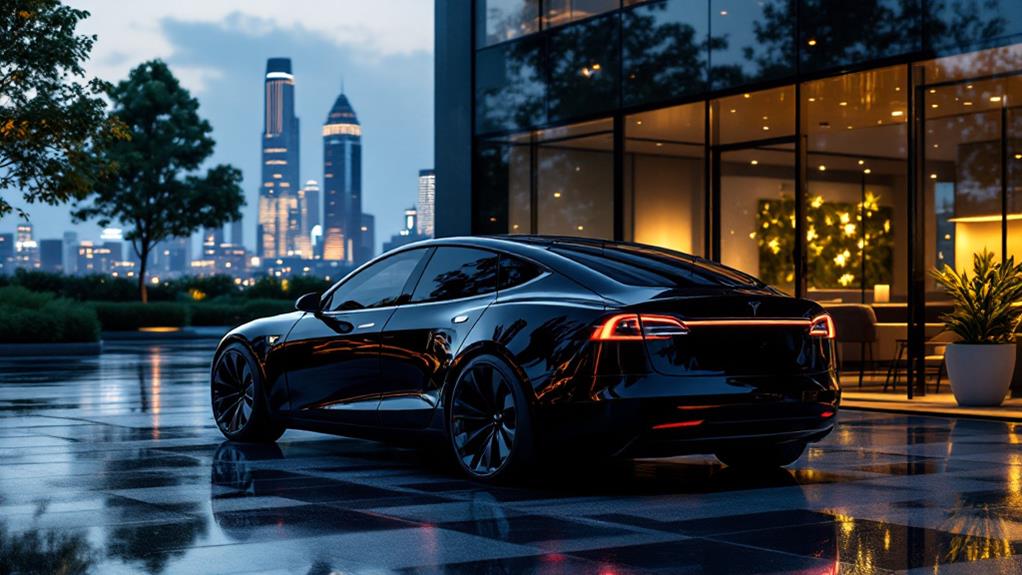
You're probably wondering if Tesla's redefining the future of luxury cars, and it's a compelling case. With Tesla prioritizing sustainability and tech innovation over traditional luxury, this brand is reshaping expectations. The Model Y, for instance, isn't just about electric performance—it's about transforming car ownership through features like advanced AI and over-the-air updates. Tesla's approach has pushed even legacy brands to reevaluate how they define luxury. As the line between luxury and mainstream blurs with models like the anticipated Model 2, the landscape is changing. Uncover how Tesla's shaking up the automotive world and what it means next.
Evolution of Luxury Car Brands
Luxury car brands have been evolving, and Tesla's progression is a demonstration to this shift. Traditionally, luxury vehicles were synonymous with high prices, exceptional craftsmanship, and the prestige of names like Mercedes-Benz and Lexus. However, the automotive industry is experiencing a transformative phase with Tesla a luxury brand leading the charge in redefining what luxury means. Tesla's entry into the market with its electric vehicles (EVs) has challenged the traditional notions of luxury, emphasizing technological advancements, electric propulsion, and autonomous driving features.
You might have noticed how Tesla's high-end models initially placed them in direct competition with established luxury automakers. Yet, their approach to modern luxury is distinct; it's not just about the vehicle's opulence but also its innovation and sustainability. With the introduction of more affordable models like the Model 3 and Model Y, Tesla continues to blur the lines between luxury and mainstream appeal, making luxury vehicles more accessible.
The shift towards electric vehicles (EVs) in the luxury segment, led by Tesla and followed by brands like Porsche and Audi, underscores a broader change in consumer expectations, highlighting eco-friendly practices as a new benchmark for modern luxury.
Tesla's Impact on the Market
Tesla's impact on the market is undeniable, as it has reimagined the landscape of luxury vehicles. By redefining what luxury means in the automotive world, Tesla has shifted consumer preferences towards electric vehicles (EVs). The introduction of models like the Model 3 and Model Y has broadened their appeal beyond traditional luxury buyers, making EVs more accessible without sacrificing premium quality. In 2023, the Model Y claimed the title of the world's best-selling vehicle, underscoring Tesla's crucial role in changing market dynamics.
Price cuts have been a strategic move, making luxury EVs more reachable and forcing competitors to rethink their pricing strategies. By focusing on affordability, Tesla has not only retained its luxury status but also expanded its reach. This strategy is underscored by the anticipated Model 2, projected to debut at a price range of $25k-$30k, aiming to attract a wider audience.
Furthermore, Tesla's commitment to innovation with projects like the Robotaxi and Robovan continues to push the boundaries of what's possible in the EV sector. By leading the way in autonomous technology, Tesla is not just influencing the market—it's setting the pace for the future of luxury automotive experiences.
Defining Modern Luxury
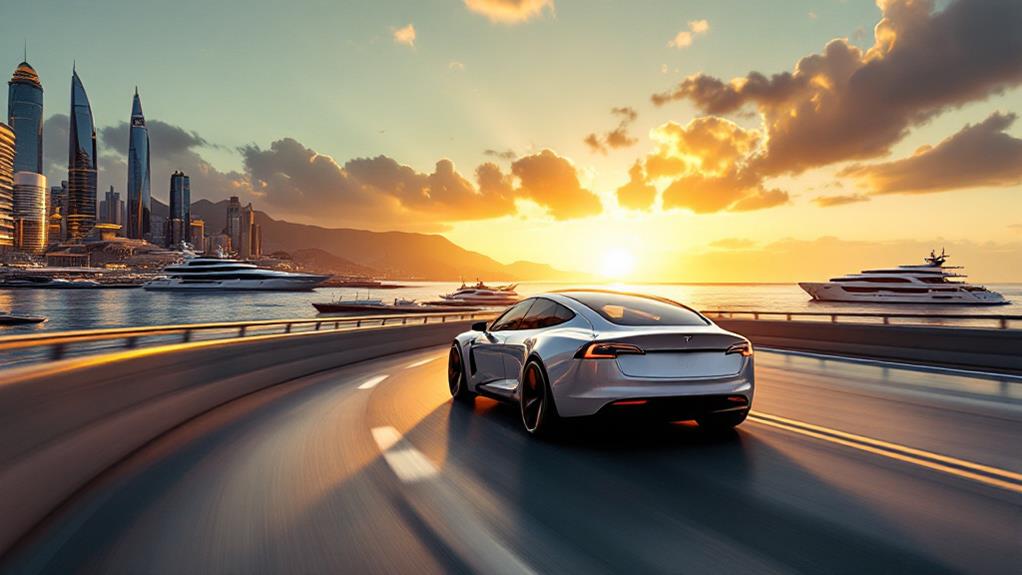
In the present rapidly evolving automotive landscape, modern luxury is being redefined by two key pillars: technological innovation and sustainability. Luxury cars are no longer just about opulence and status; they now encompass advanced technology and environmental consciousness. As a consumer, you might find yourself drawn to electric vehicles (EVs) like Tesla, which symbolize this new age of luxury with cutting-edge autonomous driving features and eco-friendly design. The shift towards sustainability means luxury is now about reducing carbon footprints without sacrificing style or performance.
Personalization plays an essential role in this redefinition. You want a car that mirrors your personality and lifestyle, and brands are responding with bespoke options. From custom interiors to unique paint jobs, personalization lets you make a statement on the road. Advanced infotainment systems and seamless AI integration further improve your driving experience, making connectivity a staple of modern luxury cars.
Consider these emotional aspects as you investigate the world of modern luxury:
- The thrill of driving with advanced technology at your fingertips.
- Pride in owning a vehicle reflecting environmental consciousness.
- The joy of having a car tailored to your unique tastes.
- The excitement of cutting-edge connectivity and infotainment.
- The satisfaction of access to affordable, luxurious EVs.
Tesla Vs Traditional Brands
Tesla stands as a formidable disruptor in the luxury automotive market, challenging traditional brands like BMW and Mercedes-Benz by prioritizing technology and electric propulsion. Unlike these established luxury brands, which emphasize performance and opulence, Tesla focuses on integrating state-of-the-art technology into its vehicles. This includes advanced safety features and autonomous driving capabilities, setting it apart in a rapidly evolving market.
With the Model Y emerging as the world's best-selling vehicle in Q1 2023, Tesla's appeal isn't limited to luxury enthusiasts. The brand's strategic pricing adjustments have broadened its market reach, attracting a more mainstream consumer base. This shift challenges the traditional luxury brands that rely on brand loyalty and high resale values to maintain their status.
Tesla's groundbreaking approach, including over-the-air updates, improves the longevity and functionality of its vehicles, offering a dynamically evolving experience for owners. The anticipated production of the Model 2, with a projected price of $25k-$30k, underscores Tesla's commitment to affordability, contrasting sharply with the high-end focus of traditional luxury brands. As Tesla's U.S. registrations nearly match those of luxury stalwarts like BMW and Lexus combined, it's clear there's a significant shift in consumer perception and market dynamics.
Technological Advancements in Luxury
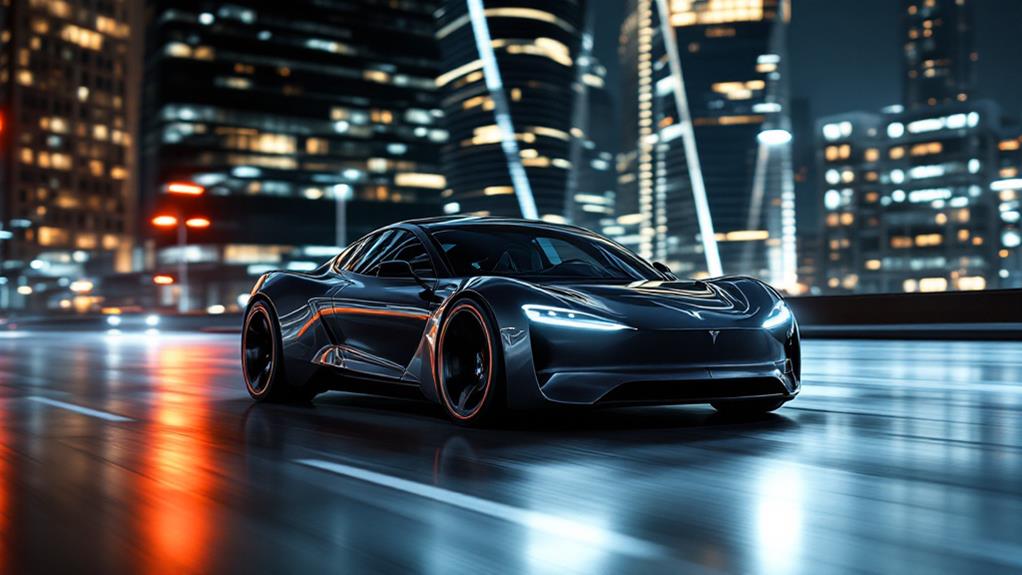
Amidst the constantly changing landscape of luxury automobiles, technological advancements have emerged as a defining element of the sector. Tesla stands at the forefront, transforming luxury automotive experiences with cutting-edge technology. Their advanced driver-assistance systems, like adaptive cruise control and lane-keeping assist, redefine convenience and safety on the road. These systems are part of Tesla's commitment to safety, guaranteeing that you and your passengers are protected by the latest innovations.
Tesla's integration of artificial intelligence creates a smarter, more intuitive user experience, setting it apart from traditional luxury brands. Their electric vehicles (EVs) not only lead the charge in sustainability but also showcase how electric propulsion can deliver high performance without compromising on luxury features.
With over-the-air software updates, your Tesla constantly evolves, gaining new features and improvements without a trip to the dealership. This guarantees your car is always equipped with the most recent technological advancements.
Consider these emotional highlights of Tesla's luxury:
- Peace of mind knowing you're driving one of the safest cars on the road.
- A seamless blend of technology and luxury in every experience.
- Pioneering innovation at your fingertips.
- A commitment to the environment with sustainable driving options.
- A driving experience that's always evolving and improving.
The Rise of Electric Vehicles
Leading the charge in the luxury car market, the rise of electric vehicles (EVs) has transformed consumer expectations and reshaped industry standards. In the U.S., you're witnessing a significant shift towards EVs, with Tesla spearheading this change. The Model Y, in particular, has redefined what you might expect from a luxury car, offering a driving experience that blends performance, style, and sustainability. By lowering its price, the Model Y now not only competes with high-end brands like Mercedes-Benz but also with more affordable market options.
Tesla's influence doesn't stop there. The anticipated Model 2, priced between $25k-$30k, promises to broaden the appeal of EVs, maintaining luxury features while targeting a wider audience. This move underscores a broader trend in the industry, where luxury car manufacturers, including BMW and Mercedes-Benz, are heavily investing in electric models. They're not just focusing on sustainability but also on integrating cutting-edge technology to improve the driving experience.
Advancements in autonomous driving, led by Tesla and Volvo, are further elevating the safety and convenience of EVs. As a consumer, you can expect these innovations to continue shaping the future of luxury cars.
Consumer Preferences and Trends
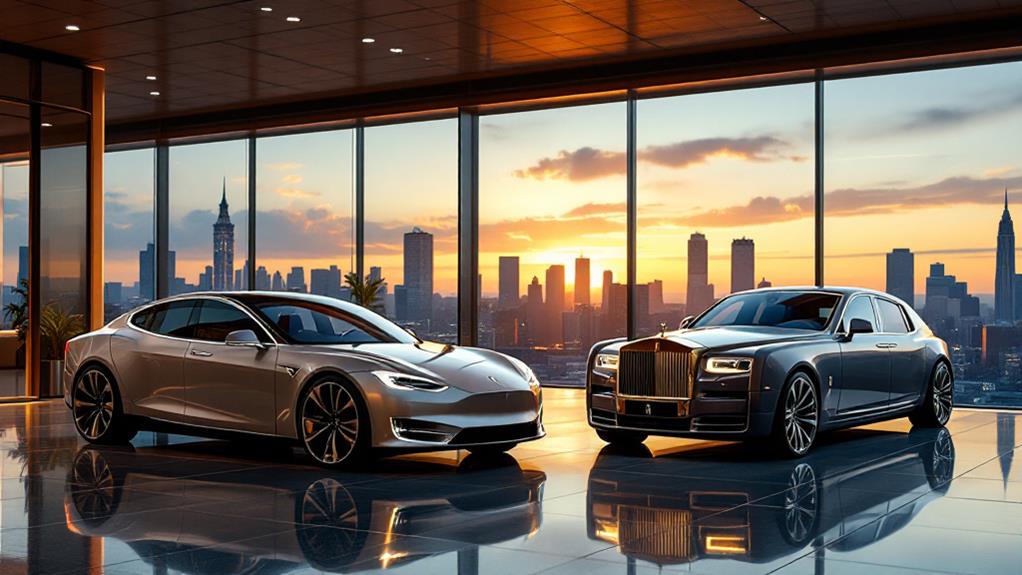
In the current luxury car market, you're seeing a clear shift in consumer preferences towards electric vehicles, with Tesla at the forefront. Tesla's innovation and the Model Y's achievement as the world's best-selling car in Q1 2023 signal this trend. The luxury segment in the U.S. is expected to grow, driven by an increased appetite for technology and sustainability. Tesla's recent price cuts make their vehicles more accessible, appealing to those seeking affordable luxury without sacrificing performance or tech features.
Brand loyalty is still a significant factor, with Lexus known for reliability. However, Tesla's innovation is attracting new luxury buyers. As urbanization continues, consumers are demanding cars with advanced connectivity, autonomous features, and eco-friendly materials. These trends are transforming how you view luxury, moving beyond traditional expectations to include cutting-edge technology and sustainability.
Consider what this means for your future car purchases:
- Excitement about being part of a tech revolution.
- Anticipation for seamless integration of life and technology.
- Pride in choosing a brand that's shaping the future.
- Satisfaction from knowing you're making a sustainable choice.
- Confidence in investing in a brand with strong growth potential.
Sustainability in Luxury Cars
As you investigate the evolving landscape of luxury cars, it's clear that sustainability has taken center stage. Luxury brands are now prioritizing eco-friendly materials and renewable energy sources. Companies like BMW and Mercedes-Benz are actively reducing their carbon footprints, demonstrating a strong commitment to sustainability. This shift is not just about meeting regulations; it's about aligning with consumer values that demand environmental responsibility.
The rise of electric vehicles (EVs) in the luxury market is at the forefront of this transformation. Advancements in battery technology have considerably improved both performance and environmental efficiency, making EVs an attractive option for discerning buyers. Brands like Porsche and Audi are leading with high-performance electric models that seamlessly blend sustainability with the luxury features you expect.
In addition to vehicle innovations, luxury brands are streamlining their production methods to minimize waste. These efficient practices guarantee that every step of the manufacturing process contributes to a sustainable future. Furthermore, luxury car manufacturers are extending these eco-conscious efforts to their supply chains, further cementing their dedication to an environmentally efficient future. As a consumer, you can now enjoy luxury without compromising on sustainability.
The Future of Tesla's Branding
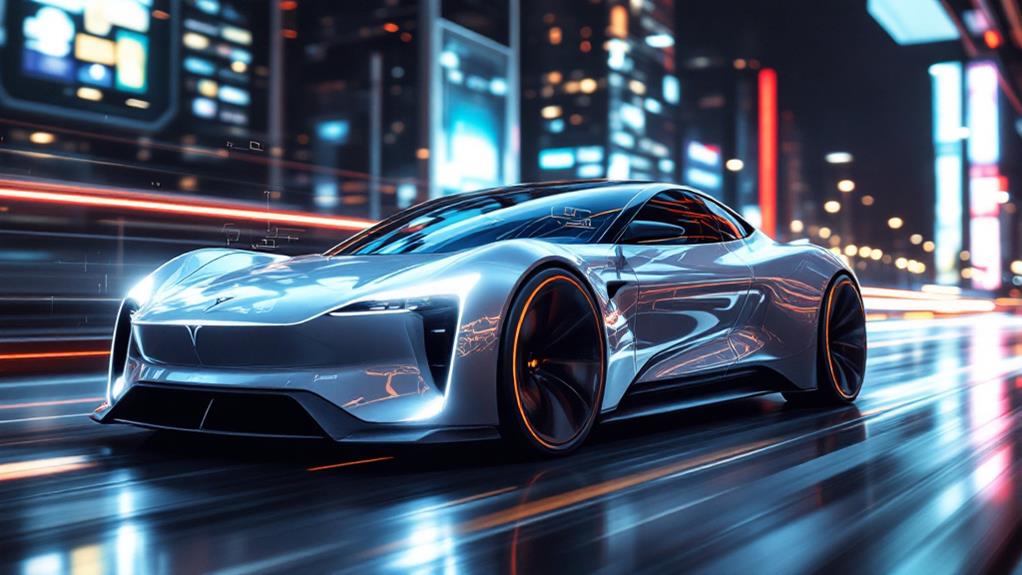
Few brands have navigated such a dynamic evolution as Tesla. It's shifted from a luxury niche to a household name, especially with the Model 3 sedan, which transformed electric vehicles (EVs) into an attainable dream for many. As CEO Elon Musk's vision unfolds, Tesla's branding is veering away from traditional luxury, aiming instead for mass-market appeal. This move is evident with price cuts aligning Tesla's offerings closer to brands like Toyota and Ford, rather than luxury titans like Mercedes-Benz.
The Model 3 and its siblings have captured consumer interest, marking a strategic pivot. Tesla's future branding seems poised to redefine what luxury means in the EV sector—a fusion of cutting-edge tech and accessibility. As Tesla continues to innovate with projects like the Robotaxi and Robovan, it's clear this brand is challenging the status quo.
Consider the emotions stirred by Tesla's expedition:
- Excitement: Witnessing groundbreaking tech in your driveway.
- Hope: A sustainable future within reach.
- Curiosity: What will Tesla innovate next?
- Inspiration: Following a visionary path.
- Empowerment: Affordable luxury in the palm of your hand.
The future of luxury might just look a lot like Tesla.



